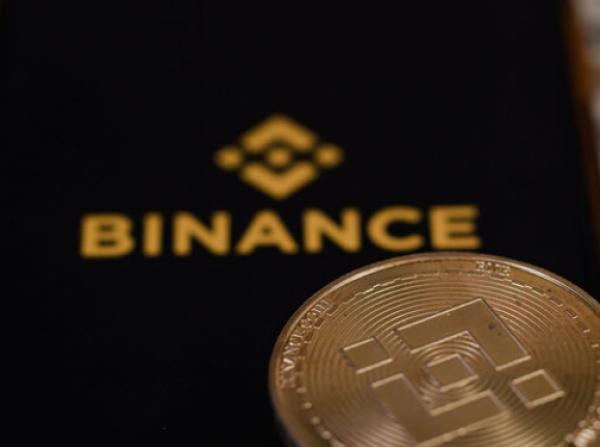 Core Web Vitals Boost – Speed Up Your Site & Your SEO!
Core Web Vitals Boost – Speed Up Your Site & Your SEO!
The Future of Cryptocurrency Exchanges: Insights into Binance Clone Development
Written by auroragrace » Updated on: June 17th, 2025

In the rapidly evolving world of cryptocurrency, exchanges play a pivotal role in bridging traditional finance with the digital economy. As cryptocurrencies gain mainstream acceptance, the demand for sophisticated, secure, and scalable exchange platforms continues to grow. One of the most notable trends in this domain is the development of Binance clone platforms. This blog explores the future of cryptocurrency exchanges, focusing on the insights into Binance clone development, including its benefits, challenges, and future prospects.
Introduction to Cryptocurrency Exchanges
Cryptocurrency exchanges are digital platforms that facilitate the buying, selling, and trading of cryptocurrencies. They serve as intermediaries between buyers and sellers, providing a marketplace for various digital assets. Exchanges can be centralized or decentralized, with centralized exchanges (CEXs) like Binance being the most common due to their liquidity and user-friendly interfaces.
Centralized exchanges manage user funds and offer a range of services, including trading, staking, and portfolio management. They are known for their high transaction speeds, advanced trading features, and customer support. However, they also come with risks related to security, centralization, and regulatory compliance.
The Rise of Binance and Its Impact
Binance, founded in 2017 by Changpeng Zhao, quickly became one of the largest and most popular cryptocurrency exchanges globally. Its success is attributed to its extensive range of cryptocurrencies, low trading fees, advanced trading features, and high liquidity. Binance's model has set a benchmark in the industry, making it a prime candidate for cloning.
Key Factors Behind Binance's Success:
Wide Range of Assets: Binance supports a vast array of cryptocurrencies and trading pairs.
Low Fees: Competitive fee structures attract a high volume of trades.
Advanced Features: Tools such as margin trading, futures contracts, and staking.
Global Reach: Multiple language support and localized services.
What Is Binance Clone Development?
Binance clone development refers to the process of creating a cryptocurrency exchange platform that replicates the functionalities and features of Binance. This involves building a platform with similar trading capabilities, user interfaces, and security measures, but often with customizations to suit specific business needs.
Key Components of a Binance Clone:
Trading Engine: The core component that handles order matching and trade execution.
User Interface (UI): A design that mirrors Binance's intuitive and user-friendly layout.
Wallet Integration: Secure storage solutions for various cryptocurrencies.
Admin Panel: Tools for managing users, transactions, and platform settings.
Security Features: Measures such as two-factor authentication (2FA), encryption, and anti-DDoS protections.
Benefits of Developing a Binance Clone
a. Cost Efficiency:
Developing a Binance clone can be significantly more cost-effective compared to building an exchange from scratch. By leveraging existing frameworks and technologies, businesses can reduce development time and costs while focusing on custom features and enhancements.
b. Proven Model:
A Binance clone inherits the strengths of an established model. Binance's success provides a solid foundation for developing a similar platform, reducing the risk associated with unproven business models.
c. Customization:
While a Binance clone replicates core functionalities, it can be customized to fit specific business requirements. This includes integrating unique features, branding elements, and regional compliance measures.
d. Rapid Deployment:
With a Binance clone, businesses can expedite their entry into the market. The development process is streamlined by using pre-built modules and adapting them to the desired specifications.
Challenges in Binance Clone Development
a. Regulatory Compliance:
Cryptocurrency exchanges are subject to varying regulations across different jurisdictions. Ensuring compliance with local laws, anti-money laundering (AML) requirements, and know-your-customer (KYC) regulations can be complex and requires ongoing legal oversight.
b. Security Risks:
Security is a critical concern for any cryptocurrency exchange. Binance clones must incorporate robust security measures to protect against hacks, fraud, and other threats. Regular updates and security audits are essential to maintain platform integrity.
c. Competition:
The cryptocurrency exchange market is highly competitive, with numerous players vying for market share. Differentiating a Binance clone from existing platforms requires innovative features, exceptional user experiences, and effective marketing strategies.
d. Technical Challenges:
Building a Binance clone involves addressing various technical aspects, including scalability, performance optimization, and integration with third-party services. Ensuring that the platform can handle high trading volumes and provide a seamless user experience is crucial.
Future Trends in Binance Clone Development
a. Integration with DeFi and NFTs:
As decentralized finance (DeFi) and non-fungible tokens (NFTs) continue to grow, Binance clones are increasingly incorporating these features. This includes offering decentralized trading options, NFT marketplaces, and staking services, expanding the platform's functionality.
b. Enhanced Security Measures:
The evolving threat landscape necessitates continuous advancements in security. Future Binance clones will likely integrate cutting-edge security technologies, such as biometric authentication, AI-driven fraud detection, and advanced encryption techniques.
c. User Experience and Personalization:
The focus on user experience will become even more pronounced. Future platforms will offer personalized trading experiences, intuitive interfaces, and tailored features to enhance user satisfaction and engagement.
d. Regulatory Adaptability:
With the increasing regulatory scrutiny on cryptocurrency exchanges, Binance clones will need to incorporate features that facilitate compliance with evolving legal requirements. This includes automated KYC processes, transaction monitoring, and reporting tools.
e. Cross-Platform Integration:
The integration of cryptocurrency exchanges with other financial services, such as banking and payment systems, will become more common. Binance clones may offer features like fiat-to-crypto gateways, payment processing, and investment management tools.
Conclusion
The future of cryptocurrency exchanges is poised for continued growth and innovation, with Binance clone development playing a significant role in shaping this evolution. By leveraging proven models, customizing features, and addressing the challenges of security and regulation, businesses can successfully enter the competitive landscape of cryptocurrency exchanges.
As the industry evolves, Binance clones will need to adapt to emerging trends, integrate new technologies, and prioritize user experience to remain relevant. The successful development of a Binance clone requires a strategic approach, a focus on innovation, and a commitment to delivering a secure and user-friendly platform.
The ongoing advancements in blockchain technology, regulatory frameworks, and market demands will shape the future of cryptocurrency exchanges. Embracing these changes and leveraging insights from successful Binance clones will position businesses to thrive in the dynamic world of digital finance.
Note: IndiBlogHub features both user-submitted and editorial content. We do not verify third-party contributions. Read our Disclaimer and Privacy Policyfor details.
Copyright © 2019-2025 IndiBlogHub.com. All rights reserved. Hosted on DigitalOcean for fast, reliable performance.















